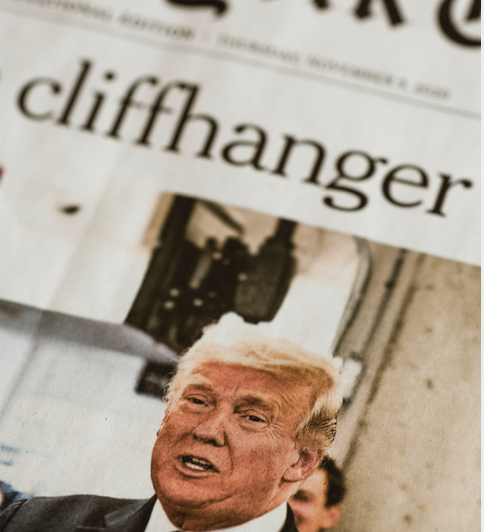“I accept the finality of this outcome which will be ratified next Monday in the Electoral College. And tonight, for the sake of our unity as a people and the strength of our democracy, I offer my concession.” These are the words of former Vice President Al Gore. He ran for president in 2000 against George W. Bush, the son of former President George H.W. Bush. The 2000 election was even closer than the recent 2020 election, and the outcome was ultimately placed in the hands of the U.S. Supreme Court. Gore actually won the popular vote. The last time the losing candidate won the popular vote was in 1876 when Rutherford B. Hayes lost the popular vote to former Governor of New York Samuel J. Tilden but still won the presidency. Many still debate whether Bush legitimately won for a couple of reasons: Firstly, the deciding state in this election was Florida, a state that so happened to have Jeb Bush, George W. Bush’s brother, as governor. Secondly, voting methods were highly controversial. In Florida, for instance, some ballots were pieces of paper that voters had to punch holes through, a method which proved to have flaws — the main one being that sometimes the holes were not punched correctly, resulting in bits of paper hanging from ballots. With all of this confusion, Gore could have easily proclaimed in his concession speech that he was the real victor, but instead he simply accepted the Supreme Court’s decision and offered his support to Bush, saying, “I also accept my responsibility, which I will discharge unconditionally, to honor the new president-elect and do everything possible to help him bring Americans together in fulfillment of the great vision that our Declaration of Independence defines and that our Constitution affirms and defends.”
In 1980, Jimmy Carter said in his concession speech, “About an hour ago, I called Governor Reagan in California, and…I congratulated him for a fine victory. I look forward to working closely with him during the next few weeks. We’ll have a very fine transition period. I told him I wanted the best one in history.” Unlike the presidential election in 2000, the 1980 election was not close, with former Governor of California Ronald Reagan taking 489 of the 538 electoral votes. Carter, at the time, was the current incumbent president, so he undoubtedly felt disappointed. In fact, Carter mentioned in his concession speech, “I promised you four years ago that I would never lie to you. So, I can’t stand here tonight and say it doesn’t hurt.” In the entirety of presidential history, there have only been thirteen one-term presidents, with Trump being the latest. However, regardless of the disappointment Carter must have felt, he was courteous; he left without a fight, and even congratulated Reagan on his victory.
In what may have been the most consequential election in history, former Secretary of State Hillary Clinton, in her concession speech, said, “We have seen that our nation is more deeply divided than we thought. But I still believe in America, and I always will. And if you do, then we must accept this result and then look to the future. Donald Trump is going to be our president. We owe him an open mind and the chance to lead. Our constitutional democracy enshrines the peaceful transfer of power.” Current President Donald Trump won the electoral vote, but the popular vote was won by Clinton by almost three million. Given where we are at now, it is interesting to note that Clinton was literally addressing Trump in her concession speech. She graciously congratulated him, although she was disappointed, and reminded us that we needed to keep an open mind.
This brings me to the question many people are thinking about lately: Will Trump concede? It has been several days since the media projected former Vice President Joe Biden to be the 46th president of the United States. Trump has not yet conceded; in fact, he has done just about the opposite. He has said he will not accept the results, and claims that the election was fraudulent. If Trump continues with the same attitude he has at the moment, he might conceivably stage a coup and try to stay in the White House for a second term. Presumably, this would result in violent riots, and perhaps even civil war. This is in fact one of the reasons why many Republicans have decided to not back Trump this time around. In theory, Republicans believe in democracy just as much as Democrats, and it is clear that Trump represents a threat to our system. In the words of late-night talk show host Stephen Colbert, “Americans are going to count something else starting right now. They’re going to count who was willing to speak up against Donald Trump trying to kill democracy, and they’ll count who will stay silent in the face of this desperate attack on the bedrock institution of this truly great nation.”
Our nation has seen forty-four different presidents peacefully transfer their power. Trump’s refusal to concede could very well be what causes our democracy to collapse. I do not think it is a stretch to say that we could be headed into one of the darkest eras in American history.

